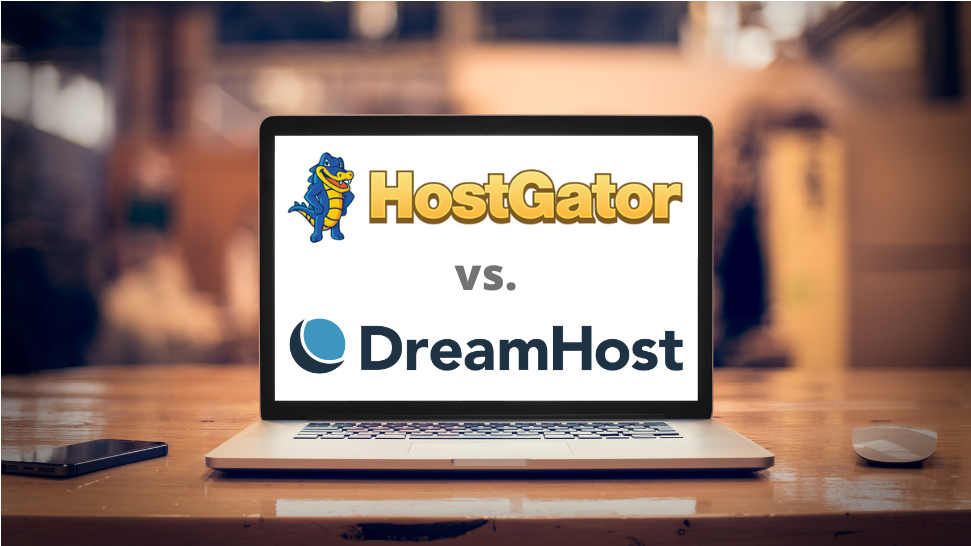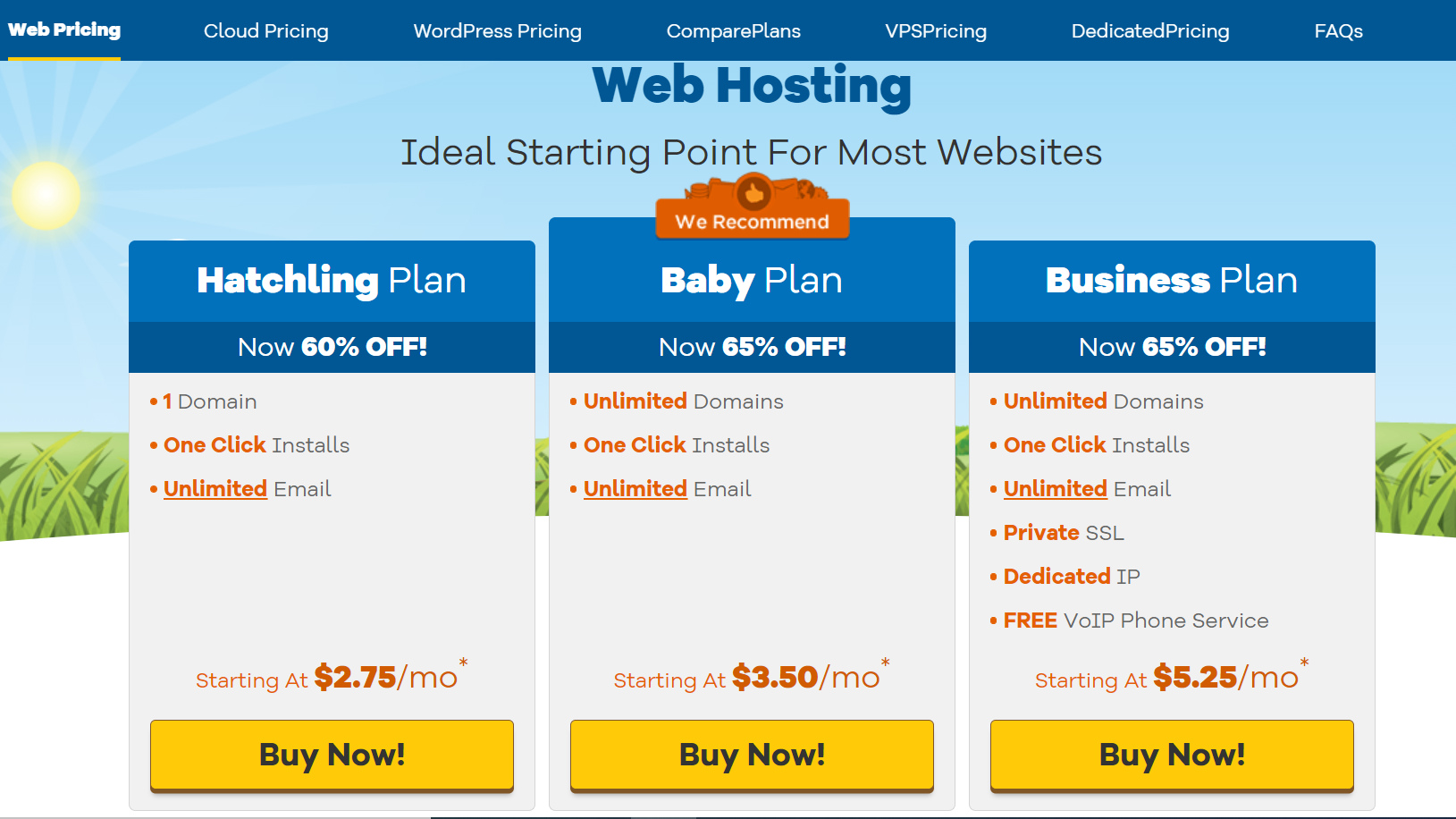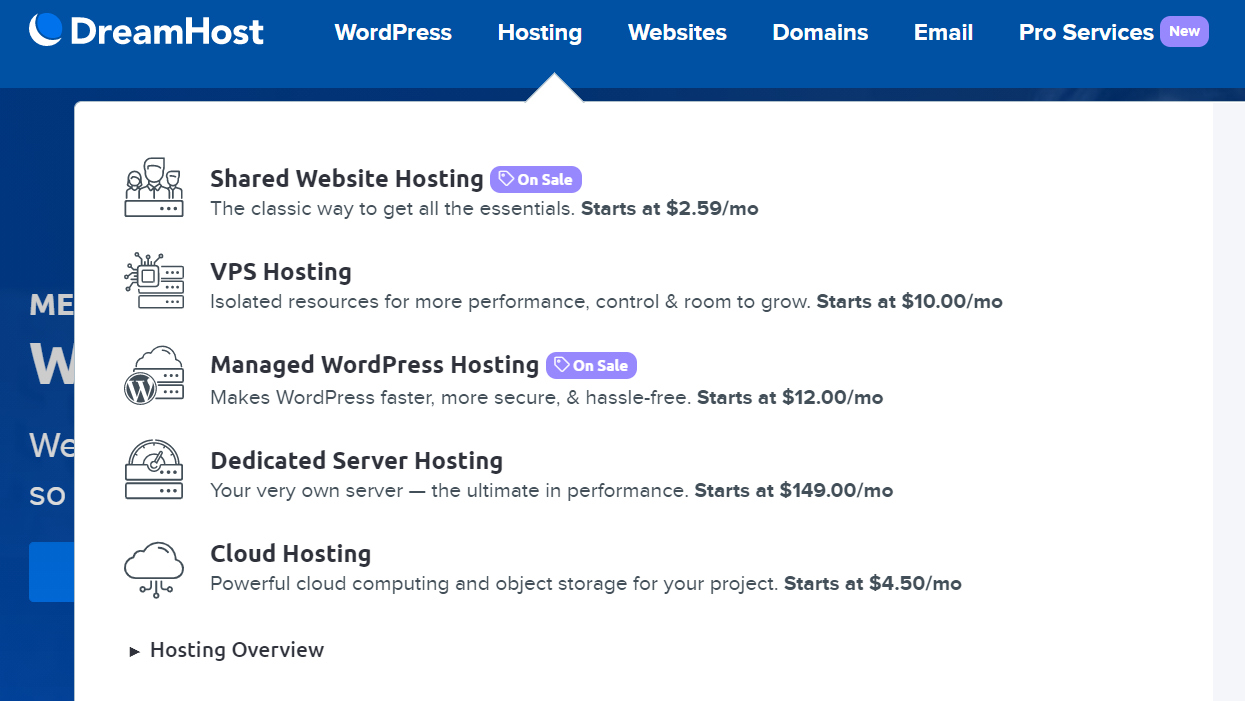HostGator vs DreamHost: Which web hosting solution is better?
Pick from two of the most popular web hosting providers out there

When it comes time to choose the best host for your website, you have plenty of options. HostGator and DreamHost offer amazing features that can be perfect depending on what kind of web hosting service you need. But which one among the two is the best?
This guide provides comprehensive information about DreamHost and HostGator so that you can make an informed decision. To figure out which host is best for your needs, it’s important to know all of their features, security, website builder offerings, performance, customer support as well as pricing.
The goal here is to compare the two web hosting platforms and provide detailed reviews on each company, to help you make an informed decision about which web hosting is right for you.
Main similarities and differences
Both HostGator and DreamHost are popular web hosting providers with a long history in the industry. They offer a variety of services, including shared hosting, VPS hosting, dedicated server hosting, and more. Both companies have pros and cons, so it's important to compare them side-by-side to see which one is the best fit for you.
One of the main differences between the two companies is pricing. DreamHost is generally more expensive than HostGator. However, it does offer discounts for longer-term contracts and often run special promotions. HostGator, on the other hand, has a unique pricing model that allows you to save money by paying upfront for multiple years of service.
Another key difference is the level of customer support offered by each company. HostGator provides 24/7 support via phone, live chat, and email. They also have a large knowledge base and a community forum where you can find answers to common questions. DreamHost offers limited live support hours and does not have a phone number listed on its site. However, they do have an extensive knowledge base with step-by-step tutorials.
When it comes to features, both HostGator and DreamHost offer a wide range of options. However, HostGator includes more features in its basic plans, while DreamHost offers more advanced features in its higher-tier plans.

Plans and pricing
HostGator offers three different web hosting plans: Hatchling, Baby, and Business plan. The Hatchling plan starts at $2.75 per month and includes a single website, one-click WordPress installs, free WordPress/cPanel website transfer, unmetered Bandwidth, free SSL certificate and free domain.
The Baby plan starts at $3.50 per month and includes all the features in the Hatchling plan. The Business plan starts at $5.25 per month and includes all features in the Baby plan plus a private IP address, SEO tools and a dedicated account manager.
DreamHost offers three web hosting plans: Shared Starter, DreamPress, and VPS. The Shared Starter plan starts at $2.95 per month and includes one website, a free domain, unmetered bandwidth, fast SSD storage, WordPress Pre-installed, free SSL certificate, a WordPress website builder, and automated WordPress migrations. The VPS plan starts at $13.95 per month and is designed for WordPress sites.
It includes everything in the Shared starter plan plus a managed WordPress hosting environment. The DreamPress plan starts at $16.95 per month and includes all the features in the Starter plan plus unlimited email, 24/7, WordPress support, on-demand backups, 1-click restore, jetpack pre‐installed, and 1-click staging.
Overall, both HostGator and DreamHost are comparable in terms of plans and pricing. However, if you are looking for a host that is budget friendly with flexible plans and pricing, HostGator may be a better option. But if you have the budget and you want more features and values for your money, DreamHost is the better option.
Features
HostGator offers a wide range of features that are designed to make your life easier. For example, it offer a one-click installer for WordPress which makes it easier to get started with your blog or website. They also offer 24/7 support so you can always get help when you need it.
On the other hand, DreamHost also offers a lot of features. It comes with an easy-to-use control panel, unlimited storage and bandwidth, automated WordPress migrations, on-demand backups, and free domain privacy protection plus more.
The web host's customer support is also excellent and it offer a money-back guarantee so you can try them out without any risk. DreamHost offers much more features compared to HostGator. So if you are looking for a hosting company that offers more features, DreamHost is a good option.

Performance
HostGator's average uptime over the past year has been 99.99%. DreamHost's average uptime over the past year has been 99.96%.
In terms of performance, HostGator is the clear winner. Its servers are faster and more reliable than DreamHost's. If you're looking for a hosting provider that can give you the best possible performance, then HostGator is the way to go.
HostGator vs DreamHost website builder capabilities
HostGator's website builder, Gator, offers users a drag-and-drop interface, pre-designed templates, and 24/7 customer support. DreamHost's website builder, Dreamweaver, offers users a more advanced set of tools, including an HTML editor, CSS editor, and FTP access. Both HostGator and DreamHost offer a free domain name when you sign up for their web hosting plans.
If you're looking for an easy-to-use website builder, then HostGator is the way to go. However, if you want more control over your website and don't mind spending a bit more time learning how to use the Dreamweaver editor, then DreamHost is the better option.
Security
Security is always a top priority when choosing a web hosting provider. Both HostGator and DreamHost offer secure options for their customers.
HostGator offers a shared SSL certificate for all of its customers. This certificate encrypts the information that is exchanged between the customer and the server. In addition, HostGator has a private SSL certificate for an additional fee. This certificate encrypts all information exchanged between the customer and the server, including passwords and credit card information.
DreamHost, on the other hand, offers a shared SSL certificate for its customers. However, DreamHost goes a step further by offering a private SSL certificate, malware scanning and a dedicated IP address. This means that your website will have its own unique IP address, which makes it more difficult for hackers to access your information. Overall, DreamHost is a clear winner in terms of security features.
Customer support
HostGator and DreamHost are two of the most popular web hosting providers on the market. Both companies offer a variety of plans to suit different budgets and needs. But which one is better when it comes to customer support?
In our test, we found HostGator to be the clear winner when it comes to customer support. They offer 24/7 live chat support as well as phone and email support. Its team is always quick to respond and is helpful.
DreamHost, on the other hand, only offers email support. While they do have a knowledge base where you can find answers to some common questions, it’s not always easy to find what you’re looking for. And if you need help from a real person, you’ll have to wait for a response during business hours.
Final thought
HostGator is the better option if you're looking for a web hosting provider with great performance, pricing, and customer support. However, DreamHost is a good choice if you want more security, features, and control over your website.
- Check out our list of the best cheap web hosting deals on the market
Are you a pro? Subscribe to our newsletter
Sign up to the TechRadar Pro newsletter to get all the top news, opinion, features and guidance your business needs to succeed!
Ruby has been a freelance technology writer for over four years and has a passion for information technology and the Internet in its entirety. She has a wide range of specialities including web hosting, streaming (Firestick, Kodi, and APKs), VPN, information technology, and affiliate marketing. Ruby is a graduate of Bachelor of Science in Commerce from the University of the Philippines, and regularly codes in her free time.